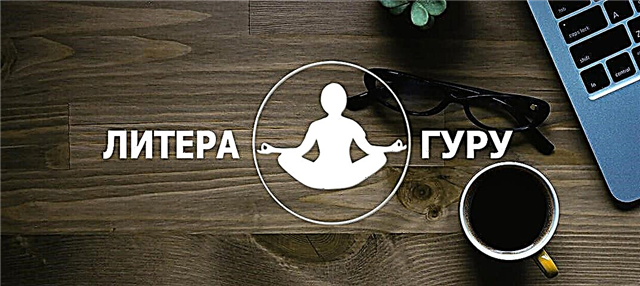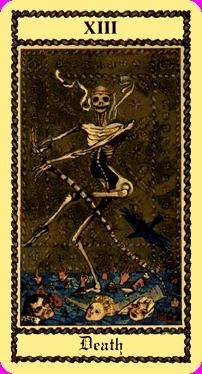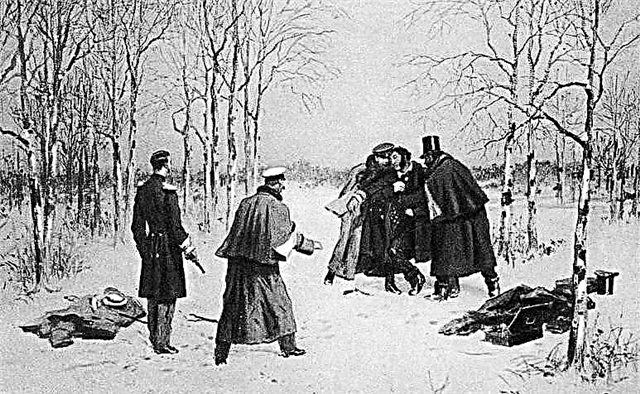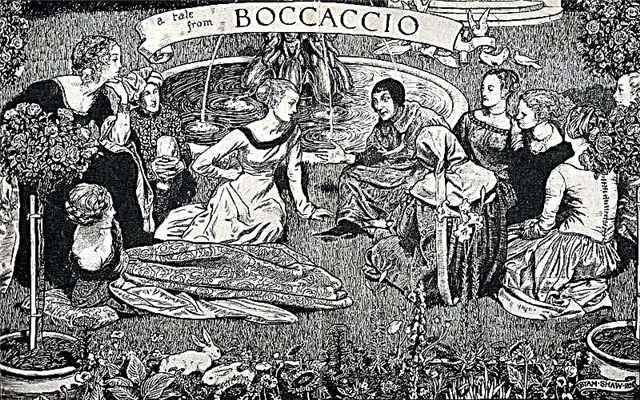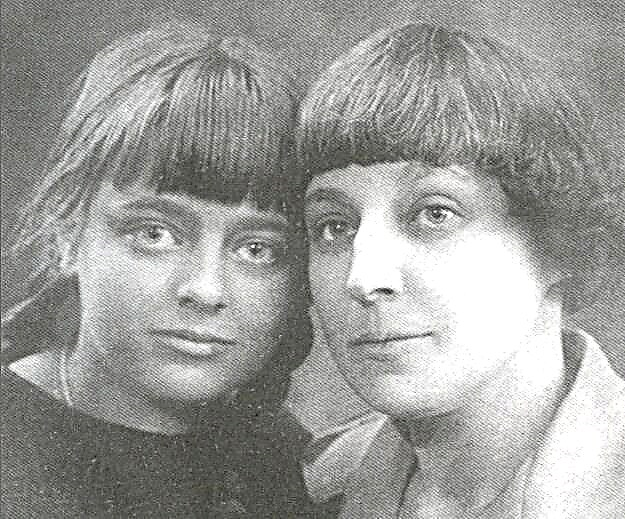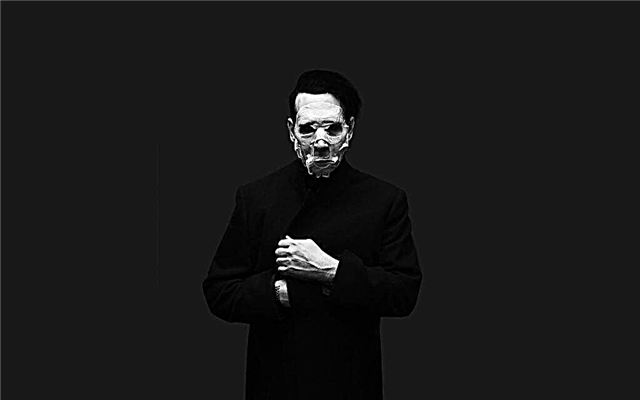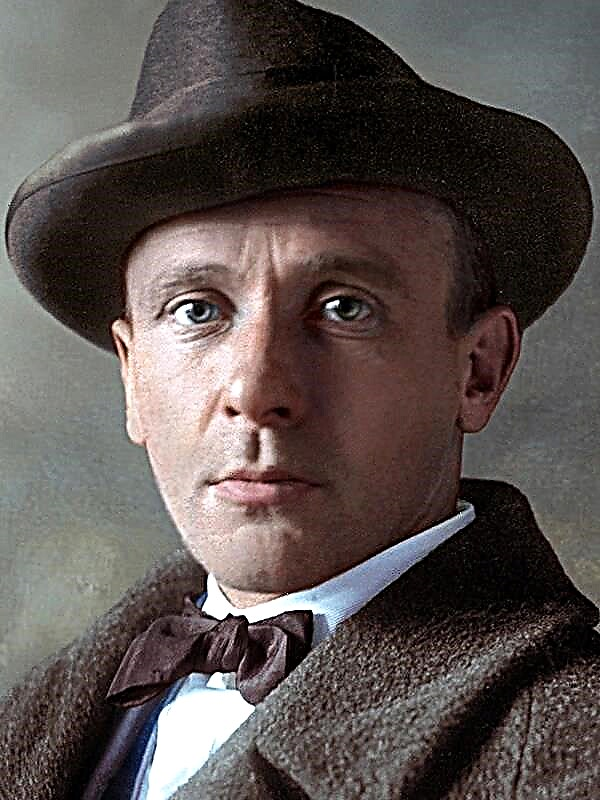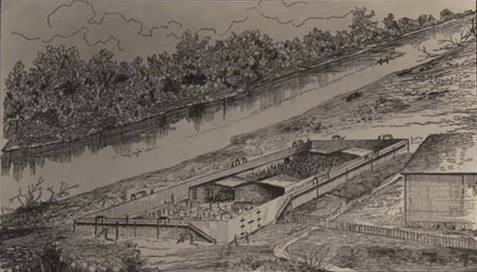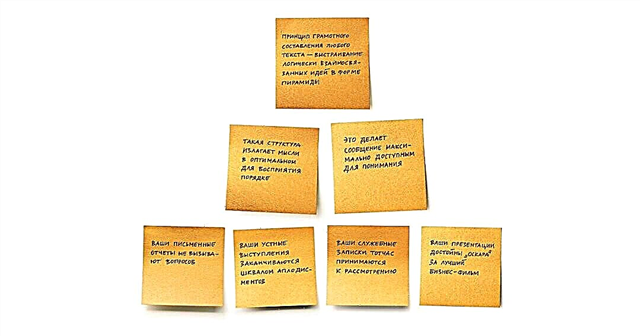Euriclea is convinced that Mirra does not like Perey: if Mirra liked someone, she would have noticed. In addition, there is no love without hope, while Mirra’s grief is hopeless, and the girl yearns for death. Euriclea would like to die so as not to see the suffering of her beloved in old age. For almost a year Kenhreida has been trying to understand the cause of her daughter's torment, but to no avail. Could Venus, having seen the daring challenge in Kenhreida’s insane maternal happiness, hated Mirra for her beauty and decided to punish the queen, taking her only daughter from her?
After interrogating Euriclea, Tsar Kinir decides to cancel the wedding: “What is my life, possessions, honor for what, / When unconditionally happy / I don’t see my only daughter?” Kineer wants to be a friend to the king of Epirus, he likes Perey, but the daughter is most important to him: “I made a father / Nature, but chance as king”, the interests of the state for him are nothing compared to Mirra’s single sigh. He can be happy only if she is happy. Kineer decides to speak with Pere. He tells the young man that he would be happy to call him his son-in-law. If he chose a husband for his daughter, he would choose Perey, and when Mirra chose him, Perey became doubly sweet to him. Kineer believes that the main thing in Perea is his personal merits, and not royal blood and not his fatherly possessions. Kineer carefully asks Perey if his love for Mirra is mutual. The young man says that Mirra seems to be glad to answer his love, but something is stopping her. It seems strange to him that Mirra in his presence turns pale, does not look up at him and speaks to him in a cold tone. It is as if she is eager to get married, she is afraid of the wedding, she will appoint a wedding day, or she will postpone the wedding. Perey does not imagine life without Mirra, but wants to free her from the word, seeing how she suffers. Perey is ready to die if Mirra’s happiness depends on it. Kineer sends for Mirra and leaves her with Pere. Perey looks at the bride’s wedding dress, but the sadness in her eyes tells him that she is unhappy. He tells her that he is ready to free her from the word and leave. Mirra explains to him that sadness is innate and questions about its causes only aggravate it. The girl is simply grieving about the upcoming separation from her parents. She swears that she wants to be Perey's wife and will not postpone the wedding anymore. Today they will get married, and tomorrow they will sail to Epirus. Perey doesn’t understand anything: either she says that it’s hard for her to part with her parents, then she’s in a hurry to leave. Mirra says she wants to leave her parents forever and die with grief.
Mirra tells Eureklee that she only craves death and deserves it only. Euriclea is sure that only love can torment a young soul in this way. She prayed to Venus at the altar, but the goddess looked at her menacingly, and Euriclea left the temple, barely dragging her feet. Mirra says it’s too late to ask the gods for her, and asks Euriclea to kill her. The girl knows that all the same, the living will not get into Epirus. Euriclea wants to go to the king and queen and beg them to upset the wedding, but Mirra asks her not to say anything to her parents and not to give meaning to the words that accidentally escaped from her. She cried, poured out her soul, and now it is much easier for her.
Mirra goes to her mother and finds Kinera. Seeing that his presence is stifling her daughter, the king hurries to reassure her: no one is forcing her to anything, she may or may not discover the cause of her suffering. Knowing her temper and noble feelings, her parents completely trust her. Mirra can do what she sees fit, they just want to know what she decided. Mother and father agree on everything, just to see their daughter happy. Mirra says that she feels the nearness of death, this is her only cure, but nature does not let her die. Mirra now pity herself, then hate. It seemed to her that the marriage with Perey, although partly dispelling her sadness, but the closer the wedding day was, the sadder she felt, so she delayed the wedding three times. Parents persuade Mirra not to marry Perey, since he is not nice to her, but Mirra insists: even if she does not love the young man as much as he does her, no one else will become her husband, or she will marry Perey or die. Mirra promises to overpower her pain, a conversation with her parents gave her strength and determination. She hopes that new experiences will help her get rid of anguish faster, and she wants to leave her father’s shelter immediately after the wedding. Mirra will come to Cyprus when Pereus becomes king of Epirus. She will leave one of her sons with her parents, so that he would be his support in old age. Mirra begs her parents to let her leave right after the wedding. Parents reluctantly let their daughter go: it’s easier for them not to see her than to see so unhappy. Mirra retires to her room to prepare for the wedding and go out to the groom with a bright brow.
Kineer shares his suspicions with his wife: “Words, eyes, and even sighs to me / Inspire fear that she / The inhuman is driven by power, / Unknown to us.” Cenchreida thinks that Venus punished Mirra for her maternal insolence: Cenchreida did not burn incense to Venus and dared to say in a burst of maternal pride that the divine beauty of Mirra in Greece and the East is now venerated higher than venerated in Cyprus from time immemorial. Seeing what was happening with Mirra, Kanhreida tried to appease the goddess, but neither prayers, incense, nor tears help. Kineer hopes that the goddess’s wrath will not haunt Mirra when she leaves Cyprus. Perhaps anticipating this, Mirra is in such a hurry to leave. Perey appears. He is afraid that becoming Mirra’s husband will become her killer. He regrets that he did not commit suicide before he sailed to Cyprus, and is going to do it now. Kineer and Kenhreida try to console him. They advise him not to remind Mirra of the tribulation - then this tribulation will pass.
Preparing for the wedding, Mirra tells Euriclea that the thought of an imminent departure gives her peace and joy. Euriclea asks Mirra to take her with her, but Mirra decided not to take anyone with her. Perey informs her that at the dawn they will be waiting for the ship, ready to sail. Mirra replies: “With you together / Rather stay and not see around / All that my saw / For so long tears and, perhaps, was / The reason for them; to sail in new seas, / Approaching new kingdoms; air / Unknown to inhale, and day and night / Share with such a spouse ... ”Perey loves Mirra very much and is ready for anything: to be her husband, friend, brother, lover or slave. Mirra calls him the healer of his suffering and savior. The wedding ceremony begins. The choir sings wedding songs. Mirra changes in the face, trembles and barely stands on its feet. Furies and Erinnia are crowded in her chest with poisonous whips. Hearing such speeches, Perey is imbued with the confidence that he is disgusted with Mirra. The wedding ceremony is interrupted. Perey leaves, promising that Mirra will never see him again. Kineer ceases to feel sorry for his daughter: her unheard-of trick hardened him. She herself insisted on the wedding, and then disgraced herself and her parents. Both he and Cenchreid were too soft, it was time to be strict. Mirra asks her father to kill her, otherwise she will commit suicide. The cinema is scared. Mirra loses feelings. Kenhreida accuses Kineer of cruelty. Recovering, Mirra asks Kenhreid to kill her. Kanchreida wants to hug her daughter, but she pushes her away, saying that the mother only exacerbates her grief. Mirra again and again asks her mother to kill her.
Cineer mourns Pereus, who committed suicide. He imagines the sorrow of a father who has lost his beloved son. But Kineer is not happier than the king of Epirus. He sends for Mirra. In her actions lies some monstrous secret, and he wants to know her. Mirra never saw her father in anger. He decides not to show her his love, but to try to threaten to wrest her confession. Kineer informs his daughter of Pereus's suicide. Kineer realizes that Mirra is tormented not by the Furies, but by love, and no matter how much her daughter unlocks, she insists on her own. He persuades Mirra to open himself to him. He himself loved and will be able to understand her. Mirra admits that she is really in love, but does not want to name her beloved. Even the subject of her love does not suspect her feelings, she hides them even from herself. Kineer reassures his daughter: “Understand, your love, your hand / And my throne will be magnified. / No matter how low a man stands, / He cannot be unworthy of you, / When he is to your heart. " Kineer wants to hug Mirra, but she pushes him away. Mirra says that her passion is criminal, and calls the name of her beloved: Kineer. Father does not immediately understand her and thinks that she is laughing at him. Realizing that Mirra is not joking, Kineer is horrified. Seeing the wrath of his father, Mirra throws herself on his sword and plunges it into herself. She simultaneously takes revenge on Kinera for the fact that he forcibly pulled a monstrous secret from her heart, and punishes herself for a criminal passion. Cineer cries, he sees in Mirra at once wicked and a dying daughter. Mirra begs him never to talk about her love Canchreid. Hearing a loud cry, Kenhreid and Euricleus come running. Kineer obscures the dying Mirra from Canhreida and asks his wife to leave. Kanchreida is perplexed: is Kinir ready to leave the dying daughter? Kineer reveals the secret of Mirra to Kenhreid. He takes away his wife by force: “It’s not here for us from grief / And to die from shame. Come on. ” Next to Mirra is one Euriclea. Before death, the girl reproaches her: “When ... / I ... asked for a sword ... would you, Euriclea ... / I obeyed ... And I would die ... / Innocent ... than die ... vicious ... "

